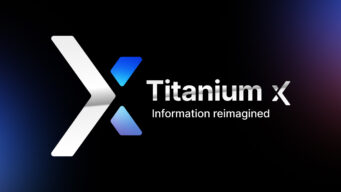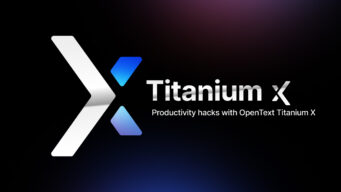In a world where information is the new currency, your company’s two most valuable assets are talent and data. While talent flows from your incredible team, data is the silent yet powerful partner. Together, they form the backbone of information management, which is vital for sustaining growth and gaining a competitive edge. Today, as we stand on the brink of a new era of human potential driven by Artificial Intelligence (AI), information management is more crucial than ever.
Welcome to the age of AI and information advantage
The proliferation of AI is transforming industries across the board. It’s more than just a technological shift; it’s a fundamental change in how we perceive and manage information. In this new landscape, unstructured data becomes a treasure trove of insights that enterprises are leveraging it to build an information advantage. This involves not only harnessing data for strategic decision-making but also ensuring it’s trustworthy and secure.
Demystifying information management
In simple terms, information management is the collection, management, and distribution of information from one or more sources to one or more audiences. It involves structured data—think databases and spreadsheets—and unstructured data like emails, text documents, and multimedia files.
Information management is the backbone of any successful enterprise. It’s the secret sauce that empowers organizations to innovate, make informed decisions, and deliver exceptional customer experiences. But what exactly does it encompass?
Data management: The process of collecting, storing, and using data efficiently. It’s the foundation for any AI application.
Data orchestration: Seamlessly integrating data from various sources to make it accessible and actionable.
Process automation: Streamlining workflows and operations to enhance productivity and reduce human error.
Privacy and security: Safeguarding sensitive information to prevent breaches and maintain trust.
Data quality: Ensuring accuracy, completeness, and reliability of data used for decision making.
Data governance: Establishing policies and procedures to manage data assets responsibly.
Let’s explore how these elements come together across key business functions.
Information management in action
Building and launching innovative products: Information management is the foundation of groundbreaking products. By leveraging unstructured data and process automation, companies can identify market trends and customer preferences, enabling them to launch products that resonate with their audiences.
Enabling employees: A well-managed information ecosystem empowers employees by providing access to the right data at the right time. This enhances collaboration, encourages innovation, and improves decision-making across the organization.
Optimizing supply chains: With data orchestration and process automation, supply chains become more agile and efficient. Real-time insights help businesses respond to demand fluctuations and optimize inventory, reducing waste and costs.
Boosting digital capabilities: In today’s digital world, information management is the backbone of digital transformation initiatives. It fuels customer acquisition and retention strategies by providing insights into customer behavior.
Creating new experiences: Companies are leveraging data to craft personalized experiences that delight customers. Information management supports this by providing a 360-degree view of customer interactions and preferences.
The security imperative
With great data comes great responsibility. The rise of AI has placed a premium on data security and corporate values. Decision makers now have new expectations and challenges, moving beyond initial AI adoption to organizing data while ensuring security.
Key challenges:
Data privacy and security: Protecting sensitive information is paramount. Data breaches or misuse can have severe consequences, especially in sectors like healthcare and finance.
Data quality and integrity: AI’s performance hinges on the quality of data it receives. Inconsistent or biased data can lead to inaccurate results, impacting business decisions.
Ethical practices: Ensuring ethical AI practices is crucial. Companies need to address concerns about bias, fairness, and accountability in AI-driven processes.
Risk management: AI systems introduce new security risks. Enterprises must implement robust risk management practices to safeguard against potential threats.
The convergence of cloud, and AI has necessitated stronger safeguards. Organizations must now adopt much more advanced security measures including:
Enhanced encryption strategies: Protecting data in transit and at rest with advanced encryption and masking techniques.
Proactive threat detection: Using AI to identify and mitigate potential security threats before they escalate.
Access controls and authentication: Implementing stringent access controls to safeguard sensitive data and resources.
The new era of human potential
We’re witnessing the dawn of a new era of human potential and information is at the center. Information management is the key to unlocking this potential. With AI enhancing our capabilities, we are now able to innovate faster, collaborate more efficiently, and make smarter, data-driven decisions.
Information management is no longer a back-office function but a strategic driver of innovation and growth. By prioritizing data quality, security, and governance, organizations can unlock the true potential of their information assets.
For CIOs, business professionals, and IT specialists, the message is clear—embrace information management as a catalyst for change. It’s time to harness the power of data to propel your organization forward, secure in the knowledge that your information assets are protected and optimized for success.
Learn more about what information management from OpenText can do for your organization.




